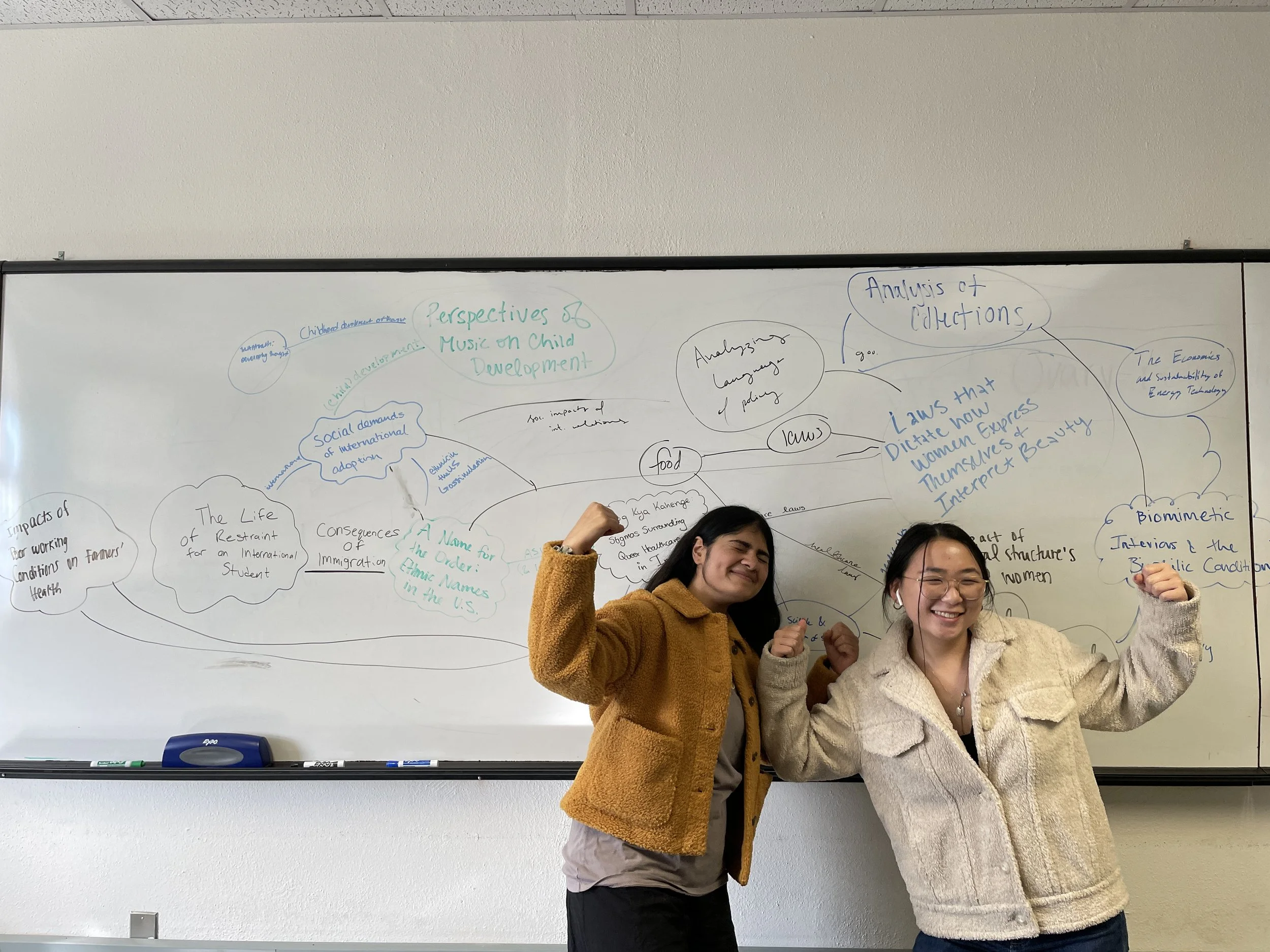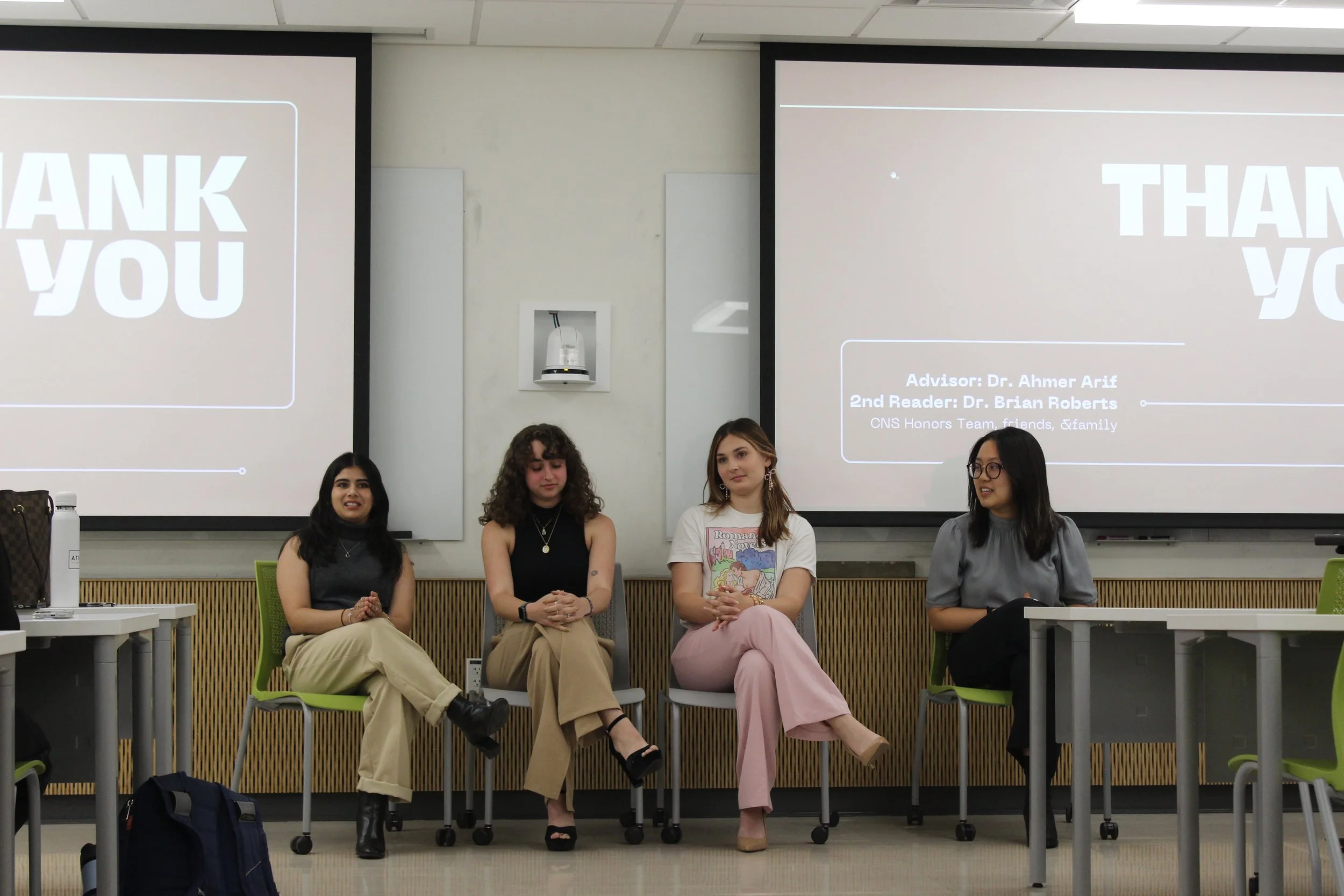pol·y·math (ˈpä-lē-ˌmăth):
n. A person of broad and varied learning.
[Greek polumathēs : polu-, poly- + manthanein, math-, to learn]
-
![]()
Year 1
UGS 303: Originality in the Arts and Sciences
Originality in the Arts and Sciences (OAS) is a first-year, fall semester course taken by everyone in CNS Honors. In this course, students learn how to navigate scientific and humanities research, and develop their writing and presentation skills. Students are placed into cohorts of 5-6 and are guided by Undergraduate Teaching Assistants through the class. Each cohort develops a scientific Grant Proposal surrounding a topic of the group’s interest and presents it to the professors and the TAs at the end of the semester. Additionally, students are tasked with writing an independent Humanities inquiry on a topic of their interest. Course descriptions are always subject to change at the Professor's discretion.
NSC 110H: PS First-Year Seminar
Each semester of their first-year, Polymaths take a seminar with Dr. Michael Mauk where they are introduced to the Polymathic Scholars Program and academic resources on campus. Polymaths also spend time brainstorming what interdisciplinary interests they have and get to know one another better!
Freshman Research Initiative (FRI) Lab Credit/Faculty Lab Credit
As CNS Honors students, Polymaths are automatically given the option to join the Freshman Research Initiative, a 2-semester program where students learn basic lab skills in the spring semester of their first year and conduct research starting as early as their fall semester of second year. Summer research fellowships are also available to support student's summer research on campus. A list of the FRI labs can be found here.
-
Year 2
NSC 109: Polymathic Capstone Field Invention
Second-year Polymaths begin formulating an interdisciplinary field and write a proposal on their field of interest. Students are guided through the brainstorming and writing processes with help from peers and professors, allowing for a smooth transition into the thesis-writing process. Students also make a list of prospective UT classes (called “Capstone Field Courses”) that connect to their fields.
*Remember: Polymaths create a field in their second-year, not a topic for their thesis. The thesis topic is something specific within the interdisciplinary field, and Polymaths spend the majority of their years learning and exploring and eventually write their thesis in their fourth-year!
NSC 110H: CNS Honors Seminar
Polymaths take fun seminars on various topics with other CNS Honors students. A list of these seminars can be found here.
-
![]()
Year 3
Capstone Field Courses
These courses are student-selected for their own fields. Polymaths are required to take 4 Capstone Field Courses to satisfy their Evidence and Inquiry Certificate (the certificate a Polymath receives after completing their thesis). These courses can be taken after completing Polymathic Capstone Field Invention and before taking PS Capstone Thesis Preparation Seminar.
PS Thesis Planning Workshops
These are a series of workshops taken both semesters of third year that introduce Polymaths to the thesis-writing process. Students learn how to navigate the process of writing and developing specific ideas within their field of study. They also learn more about the timeline of thesis-writing, how to connect with faculty who can oversee their writing, and how to incorporate coursework and experiences into their theses.
-
Year 4
NSC 323: PS Capstone Thesis Preparation Seminar
Fourth-year Polymaths begin preparing for writing their thesis with the help of Dr. Stacia Rodenbusch.
NSC 371: Capstone Thesis Seminar
In their final semester, Polymaths write their thesis after semesters of preparation.




